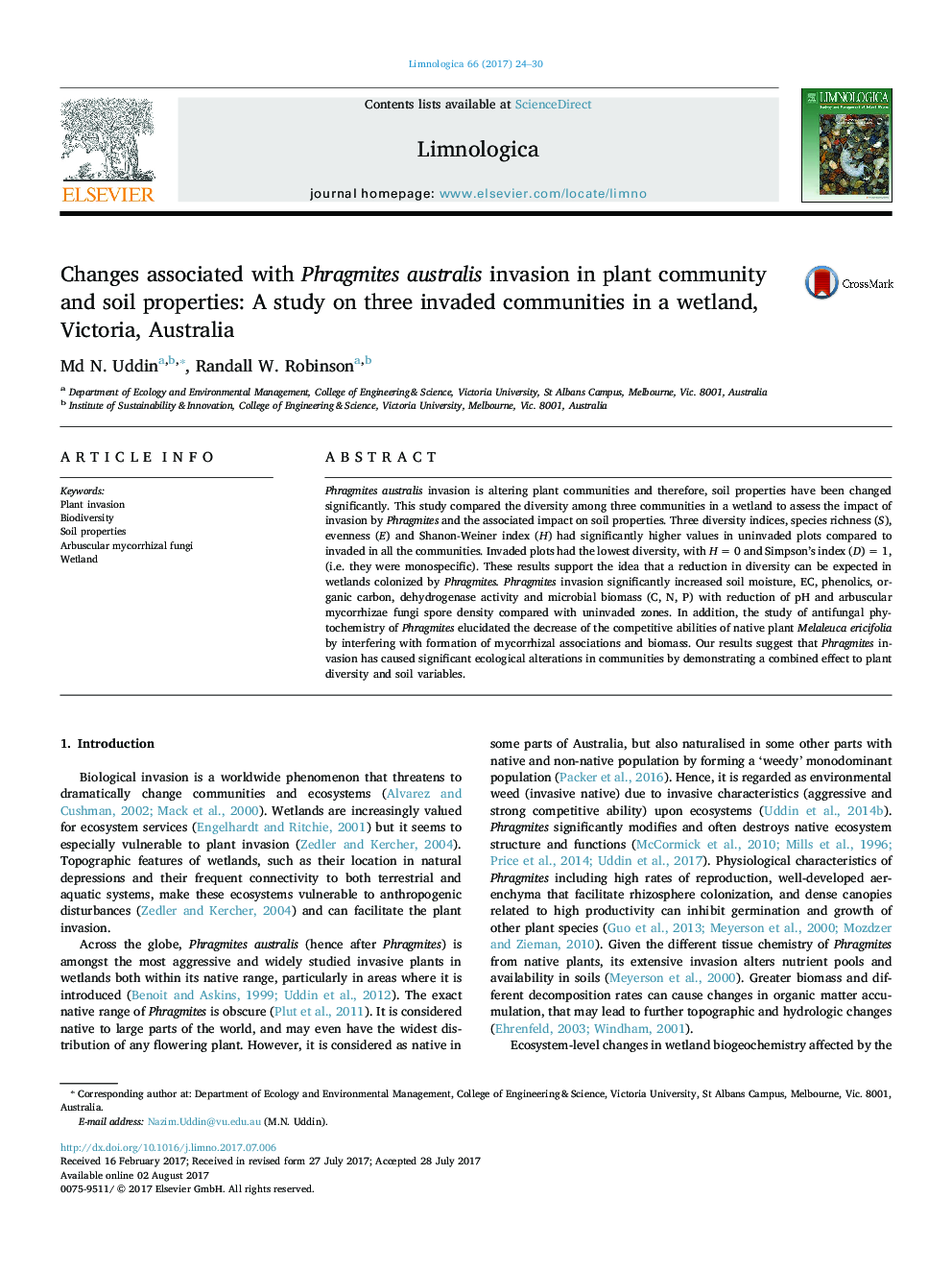| Article ID | Journal | Published Year | Pages | File Type |
|---|---|---|---|---|
| 5744911 | Limnologica - Ecology and Management of Inland Waters | 2017 | 7 Pages |
Phragmites australis invasion is altering plant communities and therefore, soil properties have been changed significantly. This study compared the diversity among three communities in a wetland to assess the impact of invasion by Phragmites and the associated impact on soil properties. Three diversity indices, species richness (S), evenness (E) and Shanon-Weiner index (H) had significantly higher values in uninvaded plots compared to invaded in all the communities. Invaded plots had the lowest diversity, with HÂ =Â 0 and Simpson's index (D)Â =Â 1, (i.e. they were monospecific). These results support the idea that a reduction in diversity can be expected in wetlands colonized by Phragmites. Phragmites invasion significantly increased soil moisture, EC, phenolics, organic carbon, dehydrogenase activity and microbial biomass (C, N, P) with reduction of pH and arbuscular mycorrhizae fungi spore density compared with uninvaded zones. In addition, the study of antifungal phytochemistry of Phragmites elucidated the decrease of the competitive abilities of native plant Melaleuca ericifolia by interfering with formation of mycorrhizal associations and biomass. Our results suggest that Phragmites invasion has caused significant ecological alterations in communities by demonstrating a combined effect to plant diversity and soil variables.
